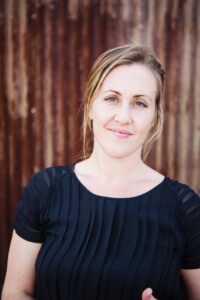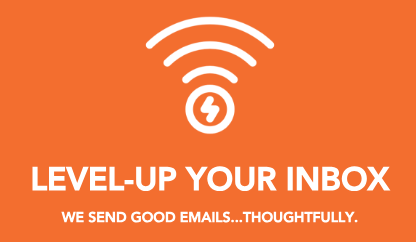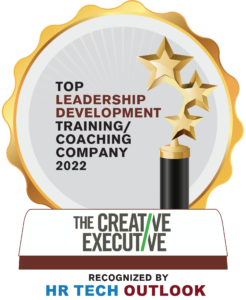
Alison Williams has good news for you:
The world will not end if you mess something up.
“I’ve taken so many wrong turns that the paradigm of failure is no longer relevant to me,” says the founder of Raconteur . “It’s just one more interesting experiment. ”
She continues, “After many of these false apocalypses, at some point you realize the world is not going to end, and that the feeling that you’re about to fall off a cliff is just you stepping out of your comfort zone and learning.” (Tweet+Share)
Her willingness to ditch her comfort zone led her to create Raconteur in 2011. With a handful of other “brilliantly devious minds,” Williams brings a storytelling approach to PR, marketing, and strategy. It’s a natural fit for the writer and born entrepreneur.
Williams talked to us about learning to listen, being yourself, and what it really takes to run a business.
What catalyzed you to make the leap from freelance writer to business owner?
I’ve always been a writer, and I bought my first business when I was 25. I had no idea what I was doing. That hasn’t actually changed much.
Since then, I’ve always done my own thing, in the mindset of pursuing writing while attempting to make a living on my terms, and also because I’m interested in many, many things. Even when I was working for a company in a “real job” (and the last time was from age 23-25), I was also taking night classes and writing. Owning my own business was natural for me because I don’t like being told what to do and I always think I can do it better than the next person; and I somehow thought I could run a business and manage employees with no training and experience and still write “on the side.”
That was a total delusion. Anyone who owns a business knows that it is like having a child; it demands your attention all the time. The good part about having been an entrepreneur pretty much my whole career is that by now I don’t get fazed by the things that a lot of first-time business owners do. I don’t really have any idea of what it’s like to work for a company that takes care of your basic needs, like a regular paycheck or healthcare, so I don’t expect any bells and whistles. There’s no preconception of entitlement. I know if I don’t do the work nothing is going to happen, and that drives me.
How does the creative process unfold in your work?
I am very collaborative. I get excited about an idea and a vision and I want everyone to be in on it. First and foremost, I listen to my clients. I spend more time listening than I do talking. Through that dialogue, an idea will develop. And then it’s a matter of executing that idea.
It’s funny, because the people close to me have said I can be a rather bossy person. I don’t see it! But I suppose the “bossy” part comes in because I indeed tend to think my way is the best way, although that has definitely been tempered by experience. Nowadays I still think my way is the best way! But I’m more inclined to shut up and learn from other people. Often I find I’m wrong, or at least that someone else has an equally interesting concept that may enhance my original idea or simply be way better. And over time, that has made me humble, and it has made me bow down to focusing on the desire for the best end result.
What are you most inspired by in your industry these days?
I am inspired by the total chaos that has ensued due to the recession and the Internet revolution, pretty much across the board with the talent and businesses that produce culture today. It is a complete Wild West out there. There is more room for entrepreneurship and deviation from the norm.
In terms of production and advertising, between bringing various modes of production under one roof (concept, production, vfx, editorial, music), direct-to-client work, and pulling broadcast, digital, experiential, and print into a single budget, everyone is trying to figure out how to excel at their craft and be financially sustainable, if not exceptional. It is an impossible challenge, and yet one that is literally defining our visual, consumer and emotional culture.
What’s most fulfilling about owning your own business?
The most fulfilling part of owning my own business is that I can pick and choose what I want to do and who and what I want to spend my time with and on. I’ve got hits and misses, and I walk a fine line between business and personal. Every job, every project, I put my heart into, and so sometimes I end up a bit bruised. But more often than not, I get to step into arenas that most people only imagine. I am infinitely grateful for that opportunity.
What are some of your greatest challenges?
Feeling inundated and overwhelmed. Not having anyone above me to tell me, “That’s a good idea,” or “Don’t do that! Warning, beware!” Having to figure it all out myself.
And finances are always a challenge in a small business. Balancing having enough capital for day-to-day expenses vs. investing in growth.
What are you proud of outside your business?
I am part of the advisory Brain Trust for the Geena Davis Institute on Gender in Media, and I’m really proud of that. We have an amazing new research study coming out in September on gender in films globally, and it’s pretty intense. I’m pleased to be an active part of that messaging and instigation of change.
What is some of the best advice you’ve received that you actively practice today?
Be yourself.
I don’t think of myself as a sales-y person. In fact, I try to avoid “selling” because I don’t think it works, especially in our industry, and it’s not my style. But early on, I felt like I would go into that mode with people when I was nervous, trying to prove something, or be what I thought the person in front of me wanted.
At a certain point I just kind of figured, “Oh. Yeah. It’s all good, I’ve got this.” I realized if someone is sitting down with me or taking a call, they’re already interested in me. And then it’s just a matter having the confidence to be myself, whoever that is, and see if it’s a match or not.
Perhaps it’s an age and experience thing — I turned 40 this year — but I find more and more that just being myself is more than enough.
Describe your dream project/client/etc.
I don’t have a dream project or client. My interests are too vast. But one dream would be to own a collection of amazing hotels, in the vein of Kelly Wearstler, or Ace Hotel visionary Alex Calderwood, who sadly recently passed away. I would love to pull together art, culture, fashion, luxury and travel in an unprecedented way. Or just my own way.
Any other wisdom you’d like to add?
Being an entrepreneur is not an easy road. It looks like it from the outside, but to be sustainable — not even successful — you need to have capital, vision and a fuck-it-let’s-do-it attitude. And it’s All In. If you are the kind of person who feels anxious about possibly not having rent for a month or health insurance, go work for a company who can give you real support for your creative vision. Seek the place that you can be most successful. However, if you feel like you have reached a point where the walls are closing in, take a leap. In this day and age, you have nothing to lose. Even if you “fail,” you have still created more energy and impetus by being daring than by staying static. Live large.


